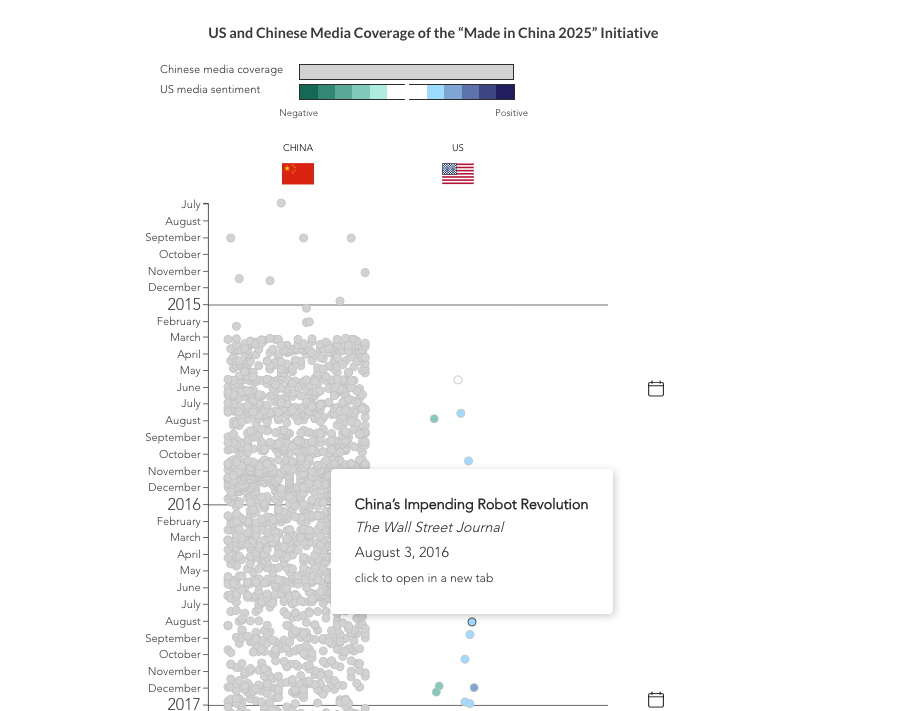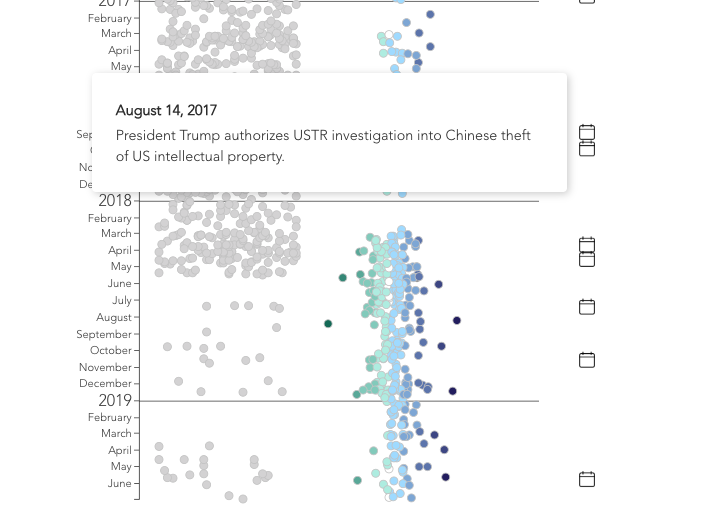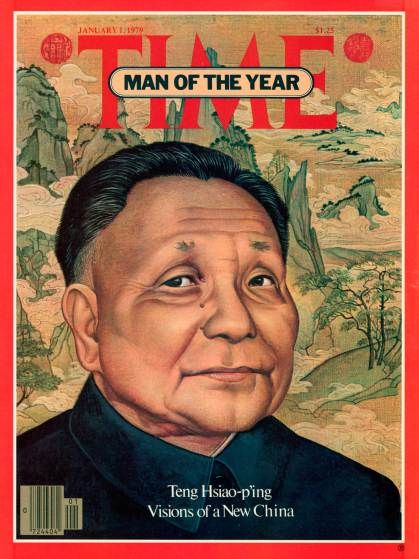THREAD. Once a controversial policy, “Made in China 2025” has virtually disappeared in Chinese media. When did it happen & why?
Our summer associate @eliotchen97 sifted through 2,975 media reports, & visualized MIC2025 coverage over the last 5 years: macropolo.org/analysis/made-…
Our summer associate @eliotchen97 sifted through 2,975 media reports, & visualized MIC2025 coverage over the last 5 years: macropolo.org/analysis/made-…
@eliotchen97 1/ By reconstructing the sequence of events that led to the outcome on both the US & China sides, this media analysis attempts to quantify and explore the correlation between American elite perceptions & whether they affected China’s responses to MIC2025. macropolo.org/analysis/made-…
@eliotchen97 2/ This visualization captures both the blow-by-blow and the scale of US & Chinese media coverage of MIC2025 from 2014 to 2019.
Hover over each dot to see the specific headline & click on the icon on the right to see political events happening at the time:macropolo.org/analysis/made-…

Hover over each dot to see the specific headline & click on the icon on the right to see political events happening at the time:macropolo.org/analysis/made-…


@eliotchen97 3/ The visualization is complemented by sentiment analysis to determine whether the extent of negative/positive US media coverage may have also factored into Beijing’s response.
Green represents negative sentiment, while blue signals positive sentiment. macropolo.org/analysis/made-…
Green represents negative sentiment, while blue signals positive sentiment. macropolo.org/analysis/made-…

@eliotchen97 4/ Let’s break down this timeline.
MIC2025 sprouted up in Chinese official media since the end of June 2014, and peaked in 4Q2015.
The US side’s coverage was rather slow. It didn’t shoot up til 1Q2017 - following the @merics_eu report on MIC2025. macropolo.org/analysis/made-…

MIC2025 sprouted up in Chinese official media since the end of June 2014, and peaked in 4Q2015.
The US side’s coverage was rather slow. It didn’t shoot up til 1Q2017 - following the @merics_eu report on MIC2025. macropolo.org/analysis/made-…


@eliotchen97 @merics_eu 5/ A turning point for the US media’s attention on MIC2025 came at 2Q2018, w/ the issuance of the Section 301 report that referenced the policy *116* times.
Notably, the sentiment of the US media’s coverage began to tilt negative at the same time. macropolo.org/analysis/made-…
Notably, the sentiment of the US media’s coverage began to tilt negative at the same time. macropolo.org/analysis/made-…

@eliotchen97 @merics_eu 6/ Then, starting on May 17, 2018, coverage of MIC2025 in Chinese mainstream media abruptly came to a halt.
Why?
The week that MIC2025 coverage ceased was also the week when Trump announced ZTE’s amnesty. Could these two events be related? macropolo.org/analysis/made-…
Why?
The week that MIC2025 coverage ceased was also the week when Trump announced ZTE’s amnesty. Could these two events be related? macropolo.org/analysis/made-…

@eliotchen97 @merics_eu 7/ With/without the official “MIC2025” designation, the industrial policies around it live on.
Mentions of “core technology” saw an uptick, while “indigenous innovation” remained steady after mid-2018. Even MIC2025 may see a mini revival since May 2019: macropolo.org/analysis/made-…
Mentions of “core technology” saw an uptick, while “indigenous innovation” remained steady after mid-2018. Even MIC2025 may see a mini revival since May 2019: macropolo.org/analysis/made-…

@eliotchen97 @merics_eu 8/ The purging of MIC2025 coverage in Chinese official media was likely a direct response to the escalation of US-China trade tensions after March 2018, and the ebb and flow of coverage seems to be deliberate & calculated.
Read the key findings: macropolo.org/analysis/made-…
Read the key findings: macropolo.org/analysis/made-…
@eliotchen97 @merics_eu 9/ @eliotchen97 was an inaugural MacroPolo Summer Associate, where he spent 10 weeks in Chicago conceptualizing and executing on this project. You can read the full methodology of his research here: macropolo.org/analysis/made-…
• • •
Missing some Tweet in this thread? You can try to
force a refresh















